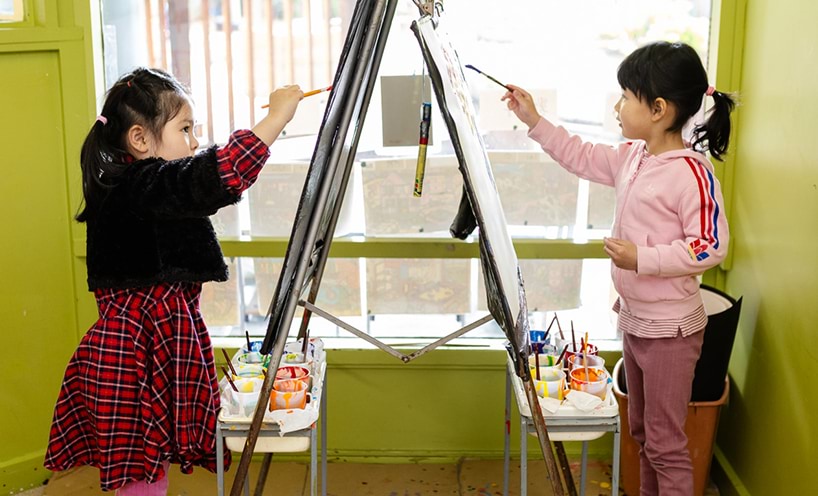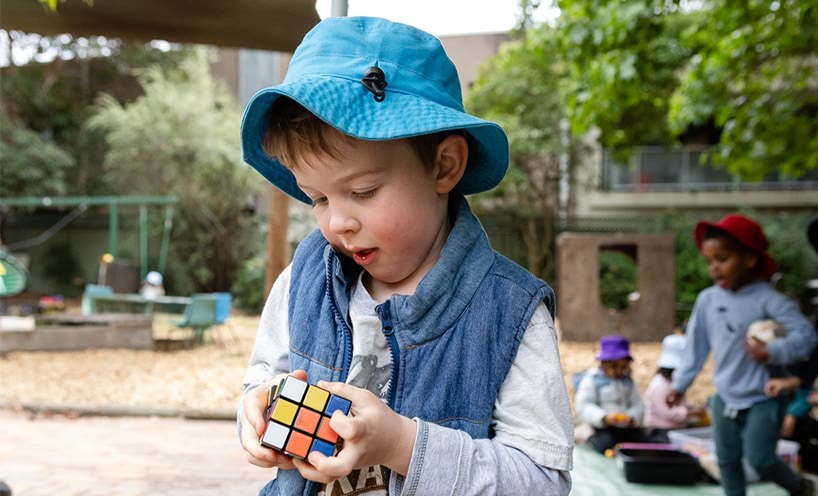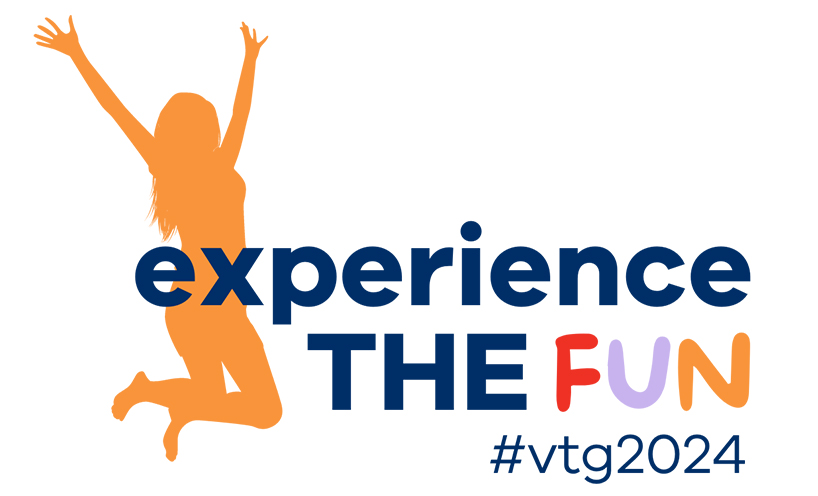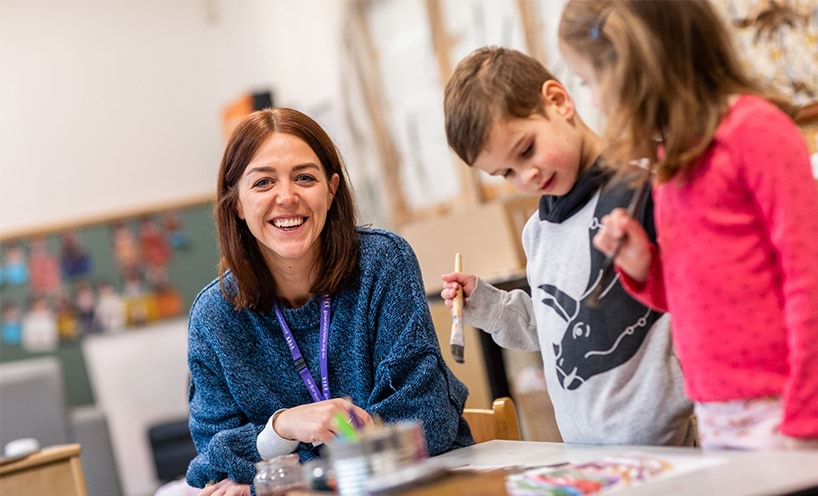- Published by:
- Department of Education
- Date:
- 6 June 2024
The Early Childhood Update e-newsletter is sent to early childhood teachers and workers, but is open to anyone interested in best practice in early years education and evidence-based teaching approaches. Subscribe here to receive the e-newsletter(opens in a new window).
Victorian State Budget extends reform commitment
Delivering on our landmark Best Start, Best Life early childhood reforms.
Dear early childhood education and care services
The Victorian Budget 2024/25, handed down on Tuesday 7 May 2024, reaffirms the government’s commitment to high-quality and accessible early childhood education. It invests a further $128.6 million towards the Best Start, Best Life reforms, bringing the total investment to $6.3 billion.
With this Budget, we remain in a strong position to continue these landmark reforms to support Victorian children to have the very best opportunities to learn, explore, connect and thrive. The progress we have already made in delivering these reforms is a credit to you and your colleagues, and we know that these reforms have been welcomed by Victorian communities.
Together, we have much to celebrate. In 2024, more than 80% of services across the state are offering 15 hours a week of funded Three-Year-Old Kindergarten. Last year, almost 89% of children in Victoria were enrolled in a Three-Year-Old Kinder program. That means some 67,413 children were able to benefit from all those additional hours of quality play-based learning, and the rollout of Three-Year-Old Kindergarten continues, working towards 15 hours per week for all children by 2029.
Following the Budget, Free Kinder continues for all children, benefiting 140,000 families this year, with savings of up to $2,563 per child offering immediate relief to many families. There is no change to the delivery of Free Kinder at participating services across the state.
As we’ve outlined further in this month’s edition, Pre-Prep will continue to be introduced in stages, with an adjusted timeframe that will now be completed in 2036. There is no change to the delivery of Pre-Prep in 6 local government areas in 2025.
In relation to infrastructure, the Victorian Government will continue to build new kinders on or near school sites, and kinders at non-government schools. By 2032, we will see 50 government owned and operated early learning and childcare centres in the areas of greatest need. Further, an extra 4 early learning and childcare centres (ELCCs) are set to open in 2026 – adding to the 10 sites already slated for construction.
Looking ahead, the Budget will support us to keep our energies focused on what matters most: our children and families who will benefit the most from kinder, supported by world-class infrastructure and a talented and committed workforce.
Last week, we acknowledged National Sorry Day on Sunday 26 May 2024, leading into National Reconciliation Week (Monday 27 May to Monday 3 June 2024).
These important dates give us the opportunity to acknowledge the injustices of the past, the strength of Stolen Generations survivors and reflect on how we can all be part of the healing process to build a better future for the First Peoples of this land.
The Victorian Government’s strategy for improving educational access, inclusion and outcomes for Aboriginal learners is set out in Marrung Aboriginal Education Plan 2016–2026 (Marrung). Marrung establishes a vision that Victoria will be a state where every Koorie person achieves their potential, succeeds in life, and feels strong in their cultural identity.
The National Reconciliation Week theme for 2024, ‘Now more than ever’, is a reminder that we can support this vision in early childhood education through reconciliation action plans (RAP). By developing a RAP, kindergarten services can take meaningful action in support of their local Aboriginal community, advance reconciliation and embed cultural inclusion. A RAP documents how your service will strengthen relationships, respect and opportunities in and around the service and with the community.
Early childhood services can use the Narragunnawali online platform to develop their RAP, with additional professional learning, curriculum resources, subject guides and webinars to support implementation of reconciliation initiatives.
In relation to the unfinished business of reconciliation, there are many opportunities for each of us collectively and individually to take action and make change. I look forward to progressing the department’s part of this critical work.
Bronwen FitzGerald
Deputy Secretary
Early Childhood Education
Pre-Prep roll-out continues under Victorian Budget 2024/25
No change to Pre-Prep roll-out in 2025, giving kids more time to learn through play and develop the skills they need for school and life.
Following the announcement of the Victorian Budget 2024/25, Pre-Prep will remain a cornerstone of the Best Start, Best Life reforms.
With an adjusted completion date of 2036 for the rollout of Pre-Prep across Victoria, we now have more time to build the infrastructure and to grow the workforce we need to successfully deliver these groundbreaking reforms.
Led by qualified teachers and delivered through standalone (sessional) kindergartens and long day care centres, Pre-Prep will give children across Victoria access to up to 30 hours of Four-Year-Old Kindergarten, providing greater opportunities to socialise and learn through play.
Updated Pre-Prep roll-out schedule
The Best Start Best Life reforms will continue to be delivered, with Pre-Prep stages rolling out more gradually.
The updated schedule includes the following:
- no change to roll-out of Pre-Prep next year, with services in the 6 local government 2025 roll-out areas (LGAs) able to offer between 16 and 30 hours of Pre-Prep
- services in rural and regional LGAs scheduled to start Pre-Prep in 2026, 2027 and 2028 can initially offer 16 to 20 hours per week of Pre-Prep, with this to increase to up to 25 hours per week in 2029, and up to 30 hours per week from 2031
- children who are shown to benefit most from kindergarten will be prioritised and receive early access to Pre-Prep, no matter where they live in the state
- from 2026, Aboriginal and Torres Strait Islander children, children from a refugee or asylum seeker background, and children who have had contact with Child Protection services will have access to 16 to 25 hours of Pre-Prep a week, increasing to up to 30 hours a week from 2028
- from 2028, children who have (or have a parent or guardian who has) a Commonwealth concession card, and children who are a multiple birth child (triplets or more) will have access to 16 to 25 hours of Pre-Prep a week, increasing to up to 30 hours from 2030
- services in Ballarat, Bendigo and Geelong can start offering 16 to 25 hours of Pre-Prep per week in 2032, increasing to up to 30 hours from 2033
- in Greater Melbourne, Pre-Prep hours will also gradually increase to 30 hours per week. Starting in 2034, services can offer 16 to 20 hours of Pre-Prep per week, increasing to up to 25 hours in 2035 and up to 30 hours from 2036.
Find out more
For more information, refer to:
For further information on changes to the roll-out schedule, or for support with local planning and programming options, services can contact their Early Childhood Improvement Branch.
International Day of Play
Celebrate a world where every child’s right to play is respected, protected and fulfilled, on 11 June 2024.
Let’s join the calls for a world where every child’s right to play is respected as part of International Day of Play (IDOP), on Tuesday 11 June 2024.
The United Nations General Assembly passed a resolution to formally create the annual day to call attention to the need to ensure every child’s right to play is respected, protected and fulfilled, so they thrive and reach their potential.
Through play, children engage with the people, places and objects around them to build an understanding of their world. Positive attitudes towards learning, such as persistence, curiosity and imagination, are all developed during play, setting children up for a lifelong love of learning.
Victoria leads the way in play
Play-based learning is central to developing and nurturing children’s cognitive skills and overall wellbeing. This well-known pedagogy is outlined in the Victorian Early Years Learning and Development Framework (VEYLDF), which describes adult-led learning intersected with child-directed learning.
Children learn best through a combination of adult-led and self-directed exploration and imagination, in which adults react to children’s interests and steer them (‘scaffold’) to achieve learning outcomes through their play, to stimulate their intellectual, physical, social, and creative abilities.
For tips on how parents and carers can integrate play into a child’s learning, refer to Play-based learning for preschoolers.
For educators wanting information about play-based learning, refer to Why Play-based learning?
You can also check out a video recording of Australian Research Council Laureate Professor Marilyn Fleer’s presentation on play-based learning at the 2023 Best Start, Best Life 2023 Educational Leaders Conference.
Find out more
For more information, refer to International Day of Play.
Registrations open for the 2024 Victorian Teachers’ Games
The annual event is set to be another big hit when it returns from 22 September 2024, in Latrobe City – and you’re invited!
We’re calling on all early childhood education teachers and educators to take part in the Victorian Teachers’ Games (VTG) when it returns to Latrobe City from Sunday 22 September to Wednesday 25 September 2024, with registrations now open.
The VTG is a major event on the education calendar, and you’re warmly invited to join the fun.
The multi-day, multi-sport games provide an opportunity to participate in and connect through a range of sporting, recreation, wellness, and social events – it’s a great way to get those competitive juices flowing, while meeting some of your education colleagues!
Last year’s event saw more than 1,150 competitors striding heroically across the fields of glory, as they took part in 36 different events across Latrobe City.
As always, the event proved a big hit with the gathered throng, with 96% of surveyed participants saying the event benefited their personal health and wellbeing.
To help grow awareness and participation of the event, we are looking for workplace coordinators to assist, promote and encourage their colleagues to attend. You can sign up here to express your interest.
We’re looking for even more people to take part, so check out all the information on the events with registrations now open through the VTG website. The games are scheduled to occur during school holidays, and we understand that some educators may need to apply for leave to attend the games. In this instance, please talk to your workforce manager.
About the VTG
While the sporting activities are the primary focus, the social, wellness and educational aspects are equally important.
The games also provide an opportunity to travel outside your region and meet fellow educators from across the state.
It’s a great way to teach participants the value of sport competition, participation and the health and wellbeing benefits of being active.
The VTG is hosted in regional cities on a 2-year cycle, with Latrobe City hosting VTG again in this year after hosting in 2023.
Find out more
For more information, refer to the VTG Website.
For further enquiries, contact the Victorian Teachers’ Games team:
- phone: 9084 9006
- email: victorianteachersgames@education.vic.gov.au
Early Childhood Tertiary Partnerships program update
Supporting students to enter or upskill in the early childhood workforce.
During the past 4 years, the department has been partnering with tertiary providers to deliver innovative upskilling programs for early childhood educators to become early childhood teachers.
We have now expanded the range of programs we support to encourage innovation in education and training through the Early Childhood Tertiary Partnerships (ECTP) program, with support for those studying both educator and teaching qualifications.
Objectives of the ECTP
The ECTP encourages collaboration, innovation and inclusion when providing early childhood educator training and initial teacher education.
Through the ECTP, the department provides funding to tertiary education providers to deliver programs that build the student intake for quality educator and teacher education pathways across Victoria.
Many of the programs are designed to address known barriers to student retention. The programs also aim to boost cultural diversity in the early childhood workforce, with supports for migrants, refugee and asylum seeker communities built into different programs.
About the programs
Each program is different but key elements include:
- intensive monitoring by a learning mentor
- professional support for mentors and services
- qualified, bilingual and experienced staff to train and assist CALD students
- culturally responsive supports and networks
- placement supports
- supported transition into employment opportunities.
Find out more
For more information, refer to Early Childhood Tertiary Partnerships program.
For further enquiries, contact the Pre-service Programs team by email: early.childhood.iite@education.vic.gov.au



